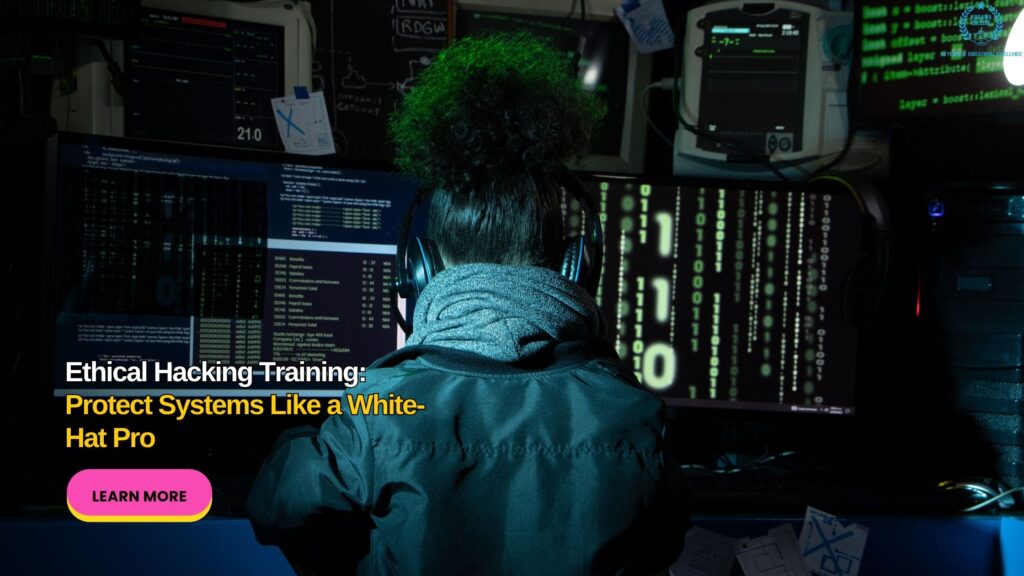Ethical Hacking Training: What It Is and Why It Matters
Hacking is usually thought of in a negative light—data theft, malicious attacks, system breaches. But not all hackers are cybercriminals. In fact, ethical hackers, also known as “white-hat hackers,” are among the most valuable assets in cybersecurity today.
What Is Ethical Hacking?
Ethical hacking involves authorized, legal hacking to test and improve an organization’s defenses. Ethical hackers simulate real-world attacks to uncover vulnerabilities before malicious hackers do. Their work includes:
- Penetration testing
- Vulnerability assessment
- Exploiting weaknesses under controlled conditions
Unlike black-hat hackers who attack systems with harmful intent, ethical hackers work with companies to strengthen security from inside-out.
Common Tools and Techniques
- Port scanning – To find open entry points
- Social engineering tests – To check human vulnerability
- Password cracking – To assess password strength
- SQL injection and XSS testing – To evaluate web application security
Ethical hackers often use the same tools as cybercriminals—but always with permission and purpose.
Career Opportunities in Ethical Hacking
- Penetration Tester
- Security Consultant
- Red Team Analyst
- Bug Bounty Hunter
Ethical hackers are in high demand in industries like finance, healthcare, education, and government, where data protection is mission-critical.
Train to Hack the Right Way at ICT Schools
The Postgraduate Diploma in Cybersecurity at ICT Schools includes hands-on training in ethical hacking techniques, compliance, and security infrastructure. Students learn to think like a hacker to protect organizations from real-world threats. With this skillset, graduates can enter a fast-growing field with confidence, ethics, and job-ready tools






